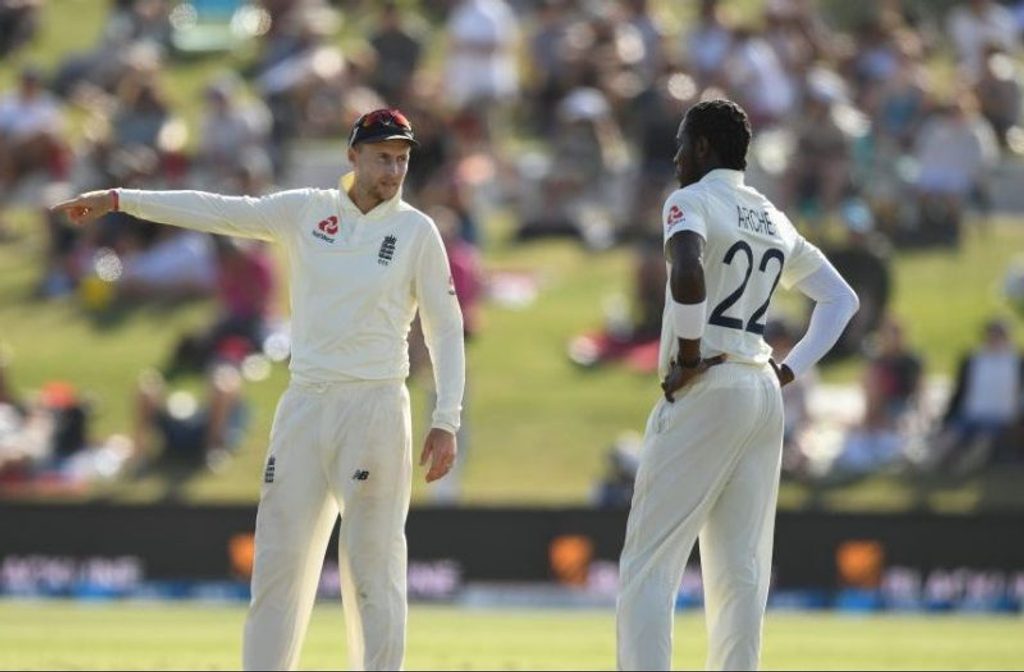
Ashley Giles has backed Joe Root to lead England’s Test team through to the 2021/22 Ashes, but many onlookers remain unconvinced by his leadership, writes Lawrence Booth, editor of the Wisden Cricketers’ Almanack.
Lawrence Booth is editor of Wisden Cricketers’ Almanack and a cricket writer for the Daily Mail
On Friday, Joe Root will move up another rung on the ladder of England Test captains. It will be his 34th game in charge, taking him one clear of Graham Gooch. Already this year, Root has left some big names in his wake – Colin Cowdrey (27 Tests as captain), Ted Dexter (30), Ray Illingworth, Mike Brearley (31 each) and David Gower (32). Only seven are above him in the pantheon: the air is becoming rarefied.
Yet the mantra here in New Zealand is that England are embarking on a new era. It is a sensible slogan in any walk of life, since it buys the protagonists time. And in some respects, it is not unfair.
After all, Ashley Giles is in his first year as the ECB’s director of men’s cricket, Chris Silverwood on his first tour as head coach (with a good Twenty20 series win under his belt). The team at Mount Maunganui included an opener in his first Test, a No.6 in his third, a fast bowler in his fifth, a No.3 in his ninth, a spinner in his 10th, a swing-bowling all-rounder in his 12th, another opener in his 13th, and a wicketkeeper who in the previous four years had kept wicket once.
Prior to the start of the 2017/18 Ashes, Joe Root averaged 4.21 MORE than Virat Kohli in Test cricket.
Root now averages 6.75 LESS than Kohli in the longest format.#NZvENG pic.twitter.com/rpKB0RmGQj
— Wisden (@WisdenCricket) November 21, 2019
Throw in England’s desire to reinvent their approach to batting, and to find a way of solving their own version of Fermat’s Last Theorem (how to take 20 wickets on flat pitches), and the mantra makes some sense.
One of the players it does not apply to, however, is the captain. Root is a seasoned pro now, as both batsman and leader. He is approaching 29, and in the prime of his run-making life. Equally, he has led the side in all manner of conditions, with mixed success.
Of the men who have captained England at least 20 times, only two have won a higher percentage of Tests than Root’s 50: Brearley (58) and Michael Vaughan (50.98). Then again, only two have lost a higher percentage than Root’s 41: Gower (56) and Archie MacLaren (50). Root’s England, we were reminded at Mount Maunganui, do not do draws – unless the weather has intervened or the opposition clung on.
Toss a coin to determine the result of each of Root’s 34 Tests, and you’d end up pretty close to his overall record. Yet he has been anointed captain through to the 2021/22 Ashes, and possibly beyond. If he is still in the job come Australia, his tally will be 62 – three more than Alastair Cook’s England record.
 Joe Root’s use of Jofra Archer on the third day of the first Test has been called in to question
Joe Root’s use of Jofra Archer on the third day of the first Test has been called in to question
A few points here. First, if you keep mentioning a series that is still two years away, the side effect is to relegate the importance of series in between, with inevitable consequences. Second, votes of confidence can easily become millstones.
Third, Root is yet to convince many onlookers, some of whom have captained England, that he has a sound grasp of tactics. His use of Jofra Archer on the third day of the first Test was, by common consent, bizarre.
Fourth, his batting is on the wane. On Monday, his average dipped below 40 as captain for the first time: only a number, yes, but a curiously resonant one at a time when he is the only England batsman whose career average exceeds it.
He remains popular, pleasant and passionate. Knowing him, he’ll score a hundred at Hamilton, and smile sweetly in the direction of the press box, if he bothers to glance that way at all. God knows, we all want him to succeed.
But it remains to be seen whether England’s new strategy – a rejoinder to knuckle down – will be the answer. At best, it may set up the occasional day of 241-4, as per the Thursday of the first Test. At worst, it risks treating every batsman the same, encouraging censure when any of them stray from the masterplan. Was it any surprise that England’s batsmen gave off such mixed messages as they tried to save the game?
The worry is that Root’s England have been here before, just differently. Under Trevor Bayliss, they had a philosophy too: feel bat on ball and get the scoreboard moving. Bayliss would couch that in varied terms, saying he regarded a positive forward defensive as an equally valid statement of intent. But there was little doubt how his batsmen interpreted the ploy.
So here we are again, another new era – except less new this time if we’re honest, and in some respects quite familiar. It would be perverse not to give Root time. But time, more than ever, is of the essence.








